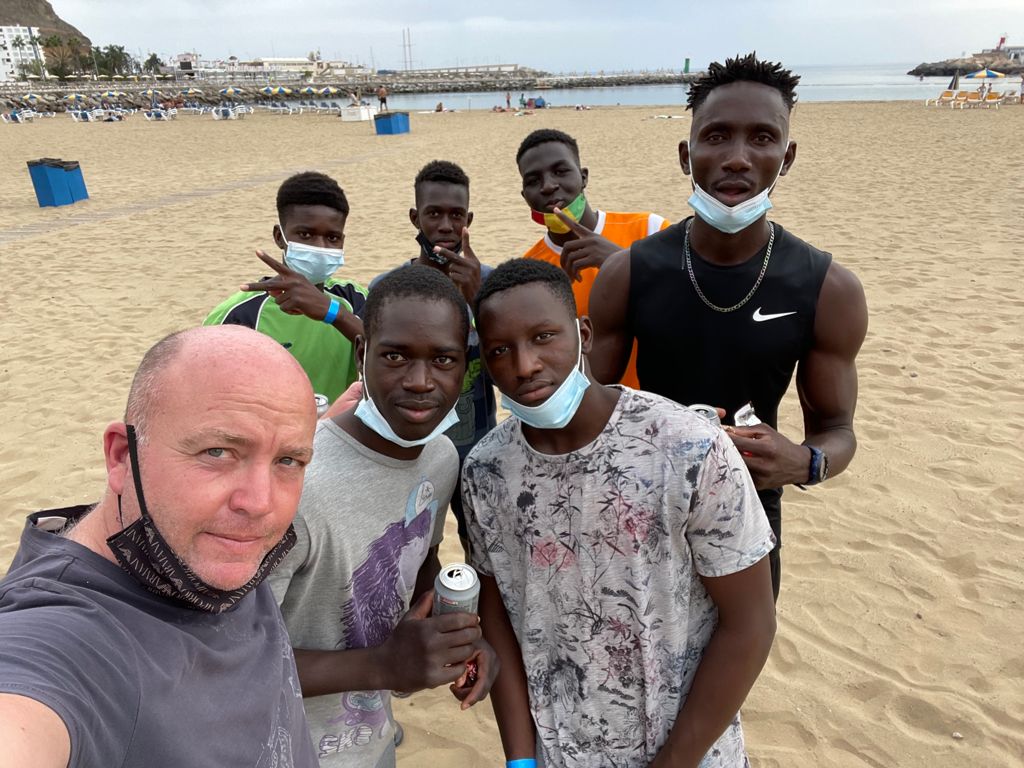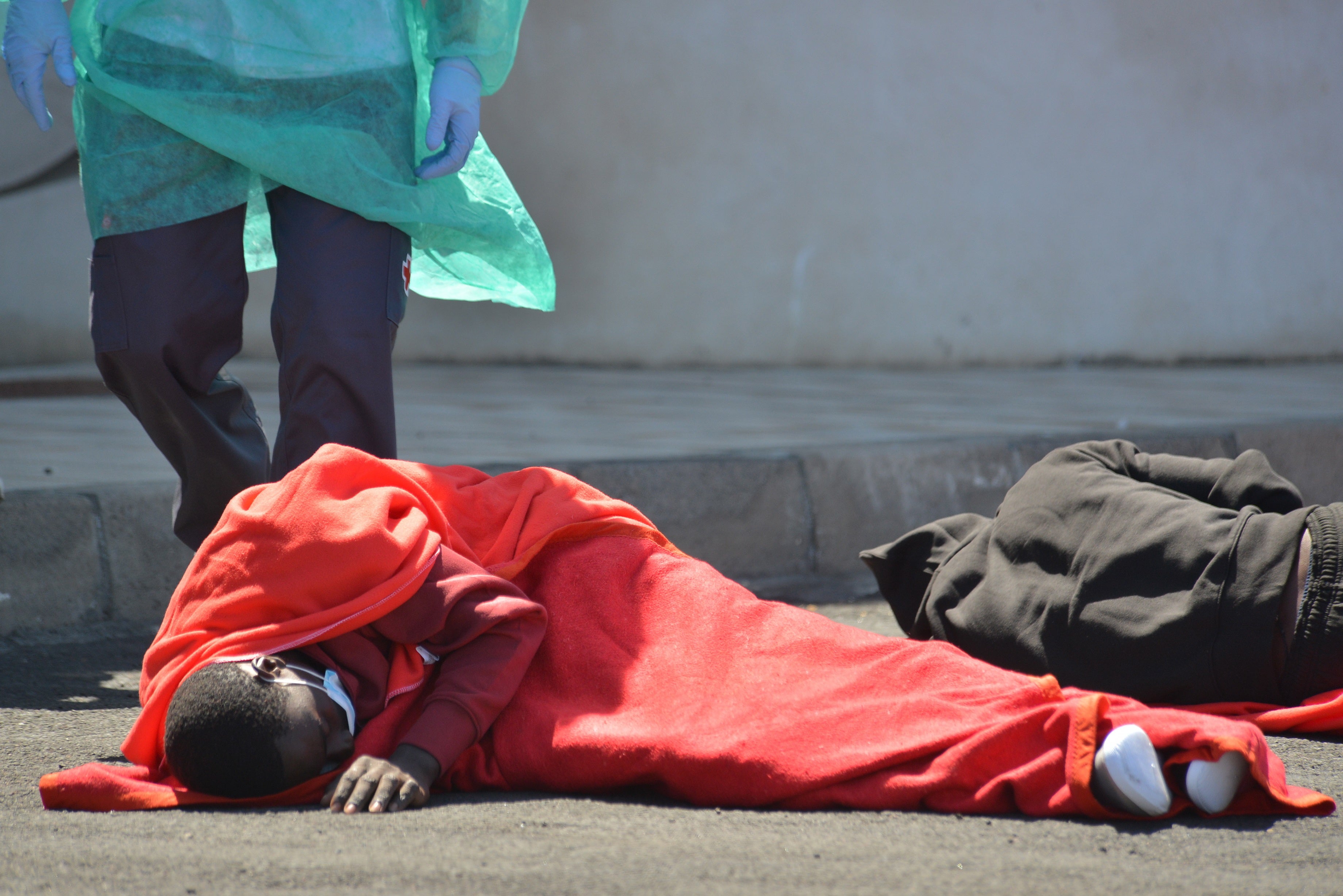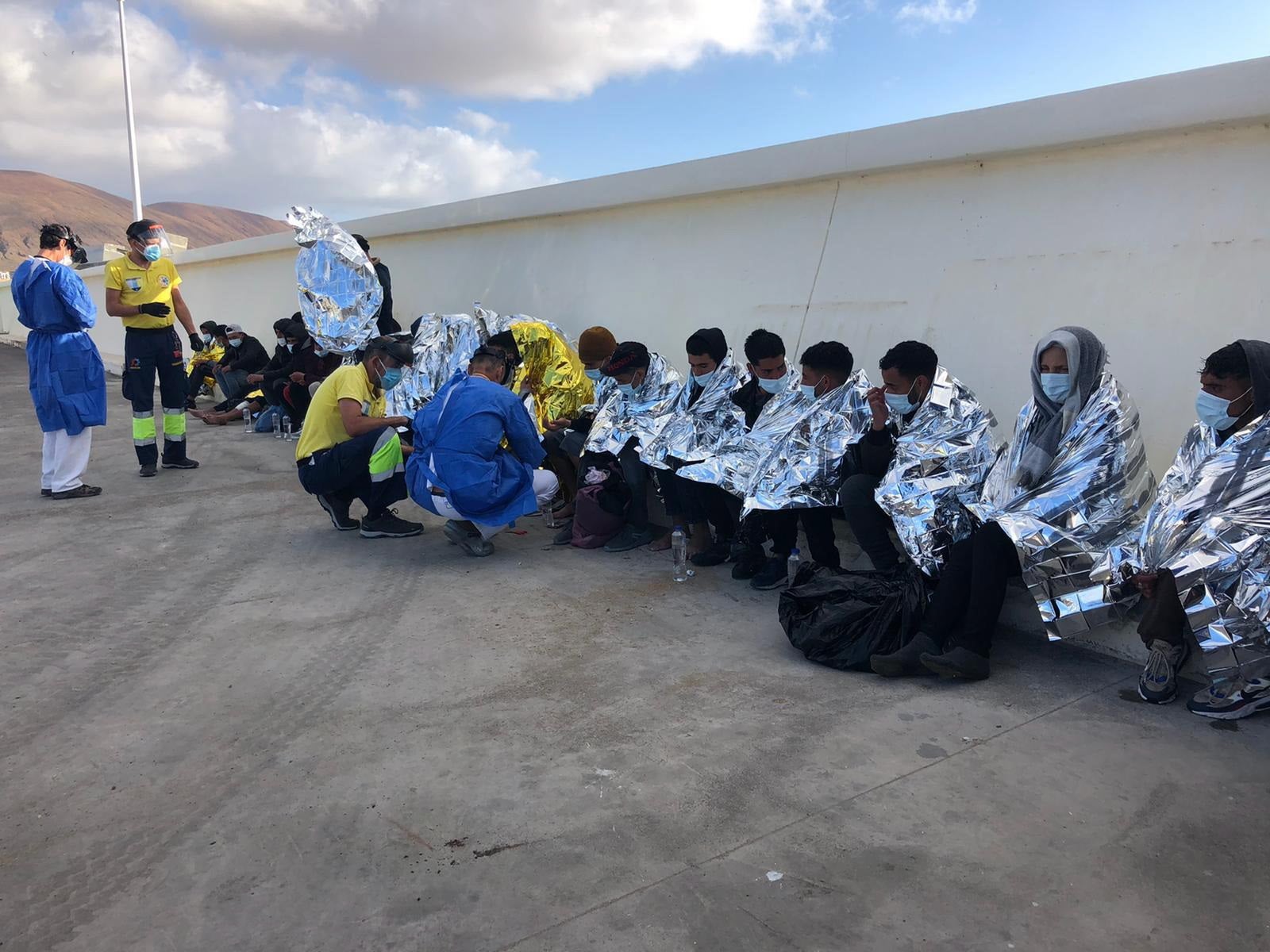‘These boys are lost’: The British hotelier putting up migrants in the Canary Islands
More than 25,000 people have arrived in the Canary Islands from west Africa in recent times. One couple has decided to help, reports Graham Keeley in Spain

Easter is normally when Calvin Lucock is gearing up for the arrival of British tourists, but instead this year he is paying the hotel bill for migrants who have taken a very different route to the Canary Islands.
The British hotelier is providing accommodation for 52 migrants who risked their lives to get to the Spanish archipelago by making the treacherous Atlantic crossing from western Africa in the hope of starting a new life in Europe.
More than 25,000 migrants have arrived on the Spanish holiday island since the start of last year, with authorities unable to cope as the Canaries became the latest focus of Europe’s migrant crisis.
Thousands ended up sleeping for weeks in tents in a makeshift camp on the dockside in Arguineguin, which is part of the tourist town on Mogan in Gran Canaria.
Desperate to find somewhere for the migrants to stay, in September the Red Cross turned to the owners of empty tourist hotels and paid for them to put up these unexpected guests.
Read more:
Now most have been rehoused in military camps, but some were left sleeping rough in the streets.
Mr Lucock, 47, who is originally from Birmingham, and his Norwegian wife Unn Tove Saetran, 51, stepped in to offer them a home at the Puerto Calma Hotel – and are footing the bill.
“These boys are lost. You cannot sit by and watch 50 or so men who have got nowhere to sleep or will have to sleep under a blanket on the floor. I wanted to offer them some safety,” he tells The Independent.
“Anyone who has lived through what I and my wife have lived through in the past six months [looking after the migrants] would have been changed, or you would have to be cast in stone or completely ignorant.”
When he was asked to take in 300 migrants last year, Mr Lucock admits he was initially nervous, but “after a day” this concern dissipated when he got to know his new guests.
“You cannot imagine the desperate poverty these people have come from. They have taken incredible risks to come here to try to realise their dreams and aspirations,” he says.

Most of those staying in the hotel are from Sierra Leone, Morocco, Mauritania, Senegal and Gambia.
“Most of them were too scared to go to the camps because they were scared that they were going to be deported,” says Mr Lucock.
Oufame Mdiay is one of those who has a roof over his head thanks to the generosity of Mr Lucock and his wife.
The 19-year-old from Senegal spent seven days in a cramped boat with 129 others before he reached the Canary Islands.
Like many before him, he paid traffickers to take him to Spain in the hope that he could escape grinding poverty at home and forge a better life in Europe. The reality has been far harder than he expected.
“In the boat I was sleeping on the bench, but at least they gave us food. I came with my four younger brothers,” he tells The Independent.
“I have come in search of work so I could send money back to my family. I hope to start a new life in Europe, to learn Spanish.”
He adds: “When we got here, my brothers were taken to a camp for children, but I was frightened and that is when Calvin offered me a place here.”
Mr Lucock, who is managing director for Holiday Club in the Canary Islands, says the company has backed his initiative.

He and his wife, who owns three restaurants, have set up a not-for-profit foundation to integrate child migrants into local society.
They aim to offer language classes, sports facilities and education for children.
He has informed the authorities that he is looking after migrants at the vacant hotel, and helps with their dealings with immigration officials.
Three teenagers have been offered the chance to run a half-marathon in Inverness – Covid-19 and immigration restrictions permitting.
Another has excelled at football.
Mr Lucock stresses that none of his guests want to stay at the hotel permanently; their aim is to forge a new life.
“None of the people here came to meet us, or the Red Cross; they came in the hope of finding a better life,” he says.
Join our commenting forum
Join thought-provoking conversations, follow other Independent readers and see their replies
Comments